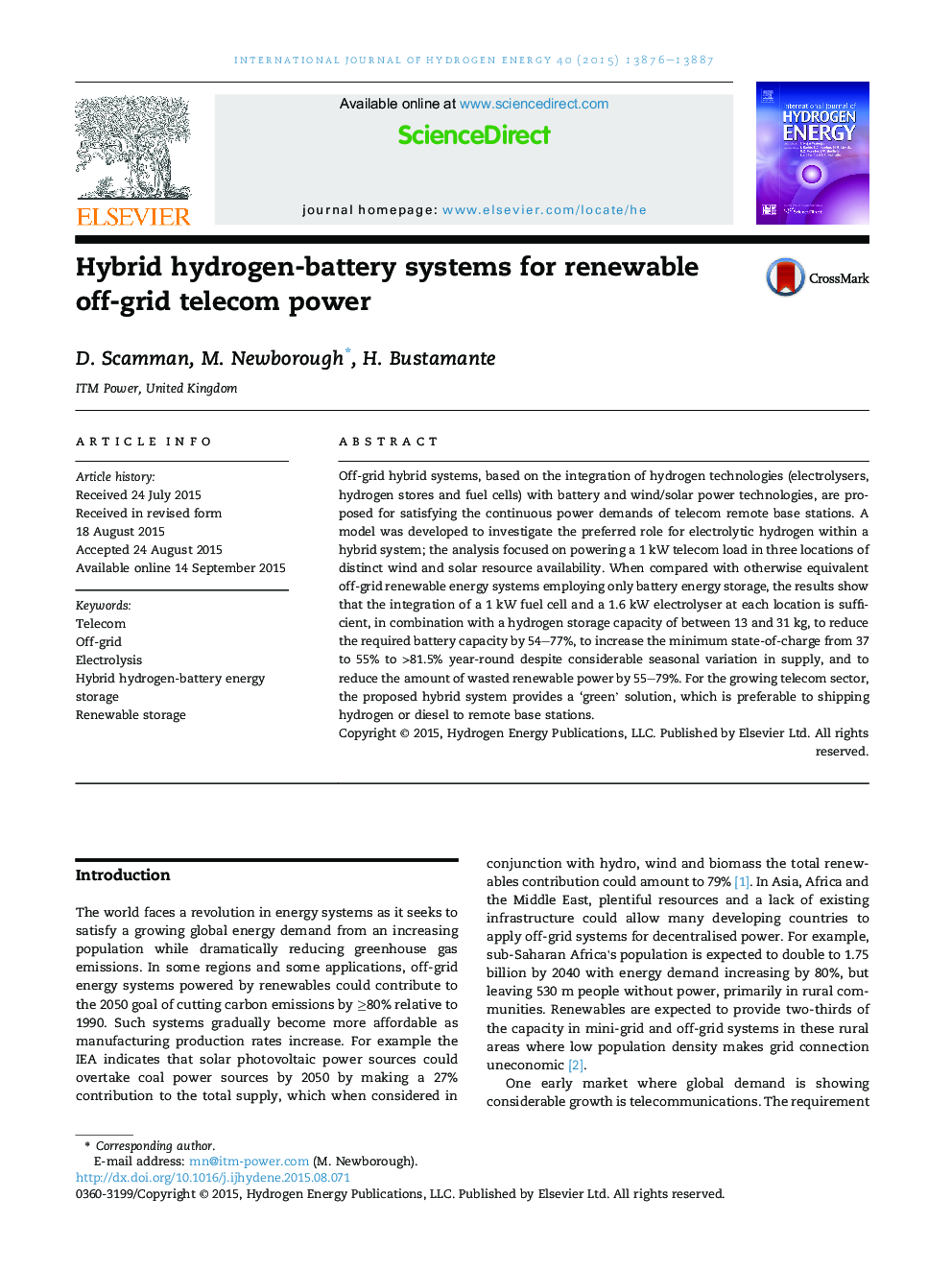| Article ID | Journal | Published Year | Pages | File Type |
|---|---|---|---|---|
| 1270445 | International Journal of Hydrogen Energy | 2015 | 12 Pages |
•Remote telecom base stations require continuous power from variable renewables.•Renewable energy systems require energy storage to manage large supply fluctuations.•Batteries exhibit short lifetimes in renewable energy systems.•Integrating hydrogen energy facilitates close regulation of battery state-of-charge.•Hybrid hydrogen-battery systems provide a more reliable solution for off-grid power.
Off-grid hybrid systems, based on the integration of hydrogen technologies (electrolysers, hydrogen stores and fuel cells) with battery and wind/solar power technologies, are proposed for satisfying the continuous power demands of telecom remote base stations. A model was developed to investigate the preferred role for electrolytic hydrogen within a hybrid system; the analysis focused on powering a 1 kW telecom load in three locations of distinct wind and solar resource availability. When compared with otherwise equivalent off-grid renewable energy systems employing only battery energy storage, the results show that the integration of a 1 kW fuel cell and a 1.6 kW electrolyser at each location is sufficient, in combination with a hydrogen storage capacity of between 13 and 31 kg, to reduce the required battery capacity by 54–77%, to increase the minimum state-of-charge from 37 to 55% to >81.5% year-round despite considerable seasonal variation in supply, and to reduce the amount of wasted renewable power by 55–79%. For the growing telecom sector, the proposed hybrid system provides a ‘green’ solution, which is preferable to shipping hydrogen or diesel to remote base stations.
